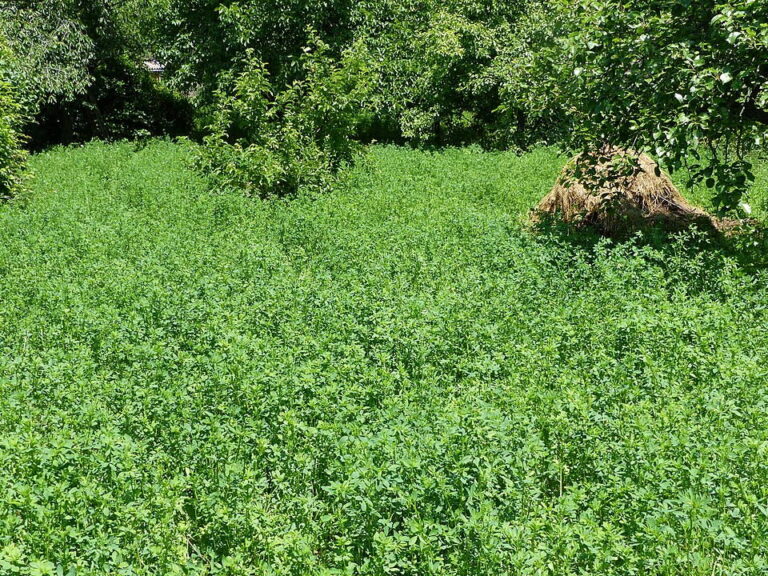
Egyptian clover is a fast-growing annual legume that is commonly used as a forage crop for animals as well as a green manure to improve soil fertility. It is native to the Middle East and the Mediterranean region but has been introduced to other parts of the world, including the United States and India, for agricultural purposes.
Berseem clover is valued for several reasons:
- High Nutritional Value: It is rich in protein and highly palatable to livestock, making it an excellent feed for cattle, horses, and other animals.
- Soil Improvement: As a legume, it has the ability to fix nitrogen from the atmosphere into the soil through a symbiotic relationship with Rhizobium bacteria in its root nodules. This nitrogen fixation can reduce the need for chemical fertilizers.
- Fast Growth: It can be harvested multiple times in a growing season because it regrows quickly after cutting.
- Erosion Control: Its rapid growth and extensive root system can help prevent soil erosion.
- Weed Suppression: The dense canopy formed by Berseem clover can suppress weeds, reducing the need for herbicides.
- Winter Cover Crop: In some regions, it is used as a winter cover crop to protect the soil from erosion during the off-season and to add organic matter when it is plowed under in the spring.
Berseem clover is typically sown in the fall in warmer climates, typically starting from the fourth of October until the end of November. It can be either grazed by animals or harvested for hay or silage. It requires well-drained soil and moderate irrigation to thrive but is generally considered a low-maintenance crop. Berseem can withstand alkaline soil and moderate salinity in the soil.
A very useful book about Berseem issued by the FAO can be found at the following link:
